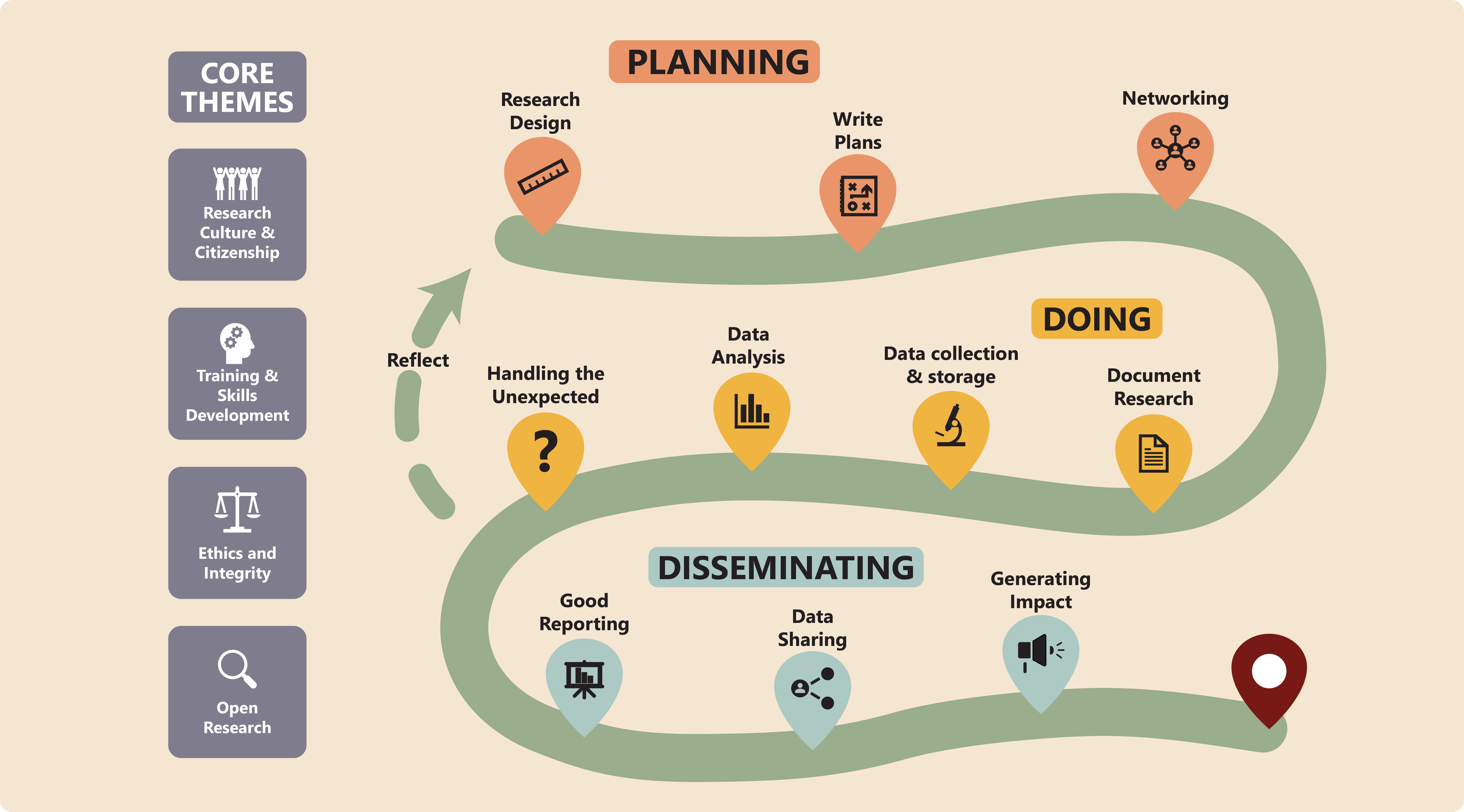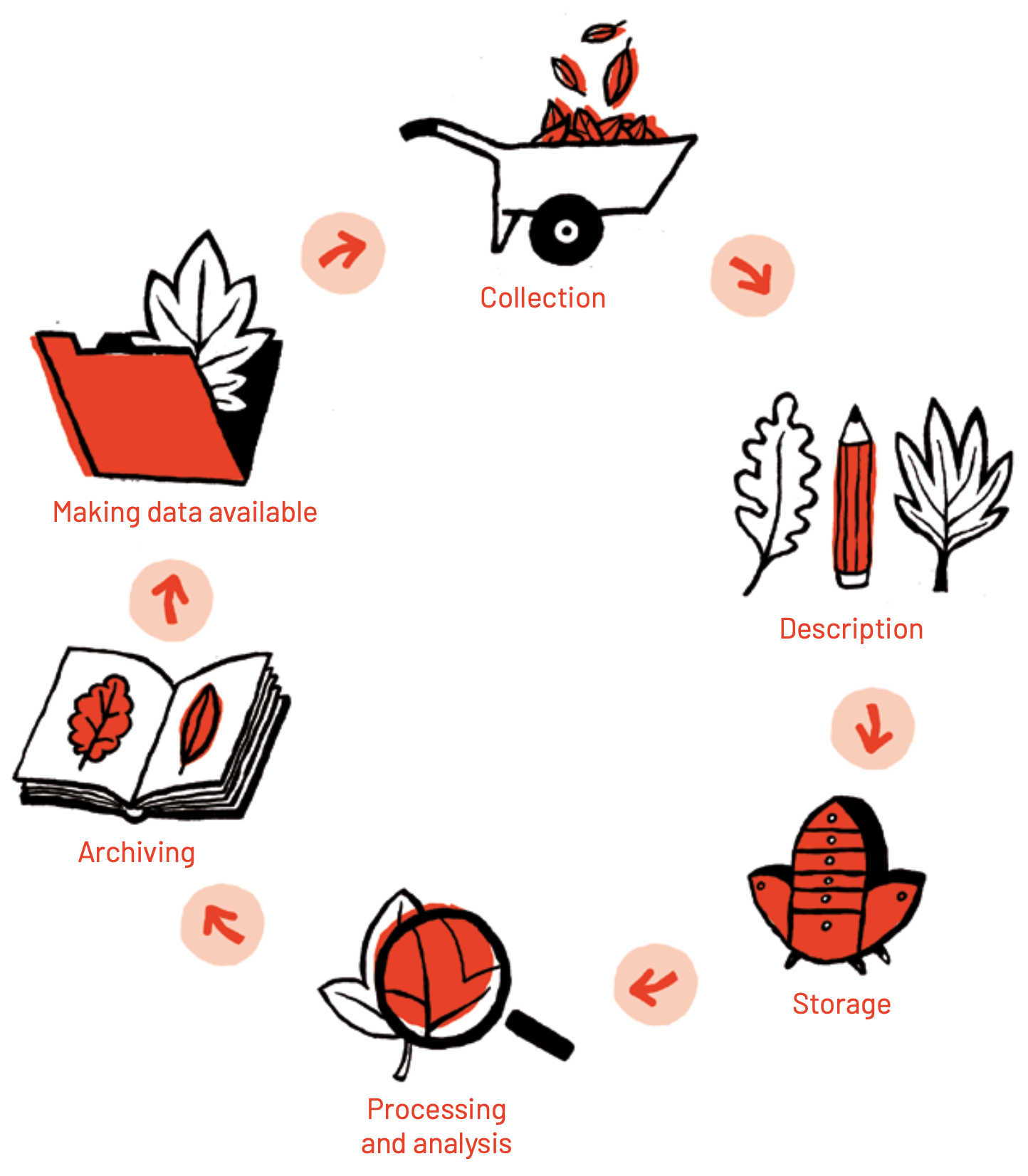Data collection & storage

Having a robust system for data collection and storage helps ensure that you have all the data you need, can keep track of it, avoid data loss, and easily share it with others within or outside your organisation when needed.

Data collection
-
When collecting data, always follow any plans or protocols previously written as well as standard operating procedures (SOPs), and ensure you understand them (ask for clarification if anything is unclear).
-
In case you must deviate from written plans or procedures, always document any deviations carefully – however minor – including the reasons for them.
-
Document everything you do and everything you notice during your data collection, including variations and unexpected changes, e.g. changes to methods, equipment or equipment settings, environment, reagents etc.
-
Always work with care e.g. double-checking important calculations, thoroughly checking analysis code or practicing code review with your peers. Check you have everything you need to proceed with data collection before starting the process.
Data storage
-
Your data is only as secure as the place it is stored – it is strongly recommended that all your data is stored on secure University storage platforms such as DataStore and/or OneDrive or SharePoint. Data stored here is secure, backed up daily to multiple sites and files can be easily shared and collaborated on with your colleagues.
-
USB sticks and external hard drives are notoriously prone to failure as well as easily misplaced and they should be avoided.
-
It is good practice to use a naming convention to give your files informative names that can be easily understood by others (and your future self!). This could include information such as data collection date, experiment or subject ID, equipment settings, or sequential numbering of multiple files or measurements within a subject.
-
It is also very helpful to include a README text file within each of your folder explaining the nature of the data, how it should be used, and details of any naming conventions or acronyms used.
-
You should keep a ‘golden copy’ of your raw data which should never be modified or to undergo any analyses. Any manipulations, tidying, or analyses should be performed on a separate copy of the data. The golden copy should be kept in a separate location and should never be edited.
Do you have a clear plan in place for your data collection and storage?
- Naming conventions guidance (University of Edinburgh)
- University of Edinburgh data storage options